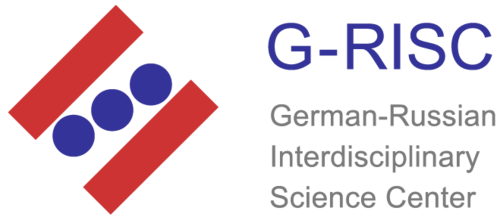12 Frequently Asked Questions about G-RISC
A G-RISC project is first of all a distinction, if selected for funding. These projects become a visible contribution to the development of German-Russian collaborations in science. Each single project is important helping to tie researchers and research interests together and to develop novel, interdisciplinary research between Russia and Germany.
G-RISC funds primarily mobility of young researchers between Russia and Germany. This concerns first of all research stays in laboratories of the partner groups in the other country. It is anticipated that this mobility goes equally into both directions, increasing the chances for stable long-term Russian-German collaborations. G-RISC can neither fund expensive equipment nor positions for scientists. Therefore, projects funded by G-RISC can only fill the need for scientific and educational exchange.
Calls for proposals are issued every six months. They accessible to public, where they are officially advertised via the internet at the official web-site of G-RISC www.g-risc.org. The information is spread to the involved institutions in order to guarantee that a broad audience knows about calls for proposals. Typically, there is a four week time period to submit proposals before the deadline is reached. Call for proposals are typically schedule for April and October. The deadline is set to the end these months. Please look in addition for the specific announcements.
Long-term funding is not foreseen by G-RISC. There are good reasons for this: The highest degree of flexibility, access to the scientific communities, and scientific productivity is reached by short term proposals of six months. In reality it is not impossible to build a long-term project by submitting regularly proposals for evaluations. But there is no guarantee for funding, which gives for all groups the same chance to compete for the best ideas in a time that is quickly developing.
The coordinating units in St. Petersburg (main office) and in Berlin (German office) take care of all administrative duties that are required for the operation of G-RISC. There, you can ask any questions and all processing of the proposals, project handling, letters of invitation, and correspondence is done.
There is no project without problems. G-RISC does everything for the community to avoid any foreseeable problems. But nobody is perfect and if problems really occur everybody is asked to contribute to a solution. In most cases it is sufficient to ask the administrative coordinators. All problems beyond are resolved together with the scientific coordinators and the Steering Committee.
Clear instructions are published with the calls for proposals. Experience since the opening of G-RISC indicted that optimizations of this process were required. Therefore, you are advised to make use of the latest version of instructions. In general, there is a strict two page limit for proposals. This helps to limit the work required for the proposers as well as the reviewers, and it is not too difficult to communicate the project ideas in limited space.
Each G-RISC proposal that is admitted requires a report, which is due four weeks after the end of funding. Details are as follows:
G-RISC Reports are required for several reasons:
- It summarizes, what has been accomplished during funding of your German-Russian research project. This should be communicated to others including the funding organization German Federal Foreign Office and the German Academic Exchange Service (DAAD).
- It will be incorporated into an Annual Report of G-RISC and should be readable by a broad scientific audience and document the success of your project.
- It should inspire other people from Russia and Germany to conduct interdisciplinary research between scientists from both countries.
General Information on G-RISC Reports:
- A G-RISC Report must be written in English language (no Russian or German documents are acceptable)
- The report must be delivered as an editable file Microsoft Word (or rtf) Format. No tex or pdf-documents are acceptable. Send your report to office@g-risc.org
- Line feed: single space, character size: 12 (Times New Roman)
- The report must be delivered within 4 weeks after the end of the funding period, as specified in the evaluation form.
- Use the template template for preparing your report.
Note:
- A G-RISC report is subject of evaluation by reviewers.
- A G-RISC report does not replace peer-reviewed publication published in English language in an internationally accessible journal or book.
- Peer reviewed publications represent an important success indicator of your project as well as G-RISC.
- Excellent reports and publications in peer-reviewed international journals will be of importance for subsequent projects funded by G-RISC.
- Publications should include in the acknowledgment the sentence: „This work is supported by the German-Russian Interdisciplinary Science Center (G-RISC) funded by the German Federal Foreign Office via the German Academic Exchange Service (DAAD).“
- Any publications related to a G-RISC project must be submitted to the coordination unit (office@g-risc.org).
